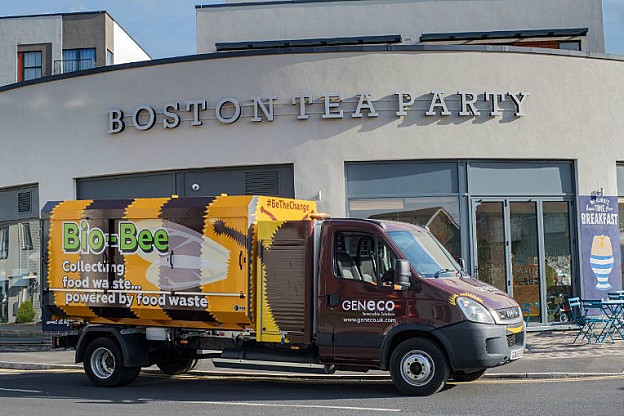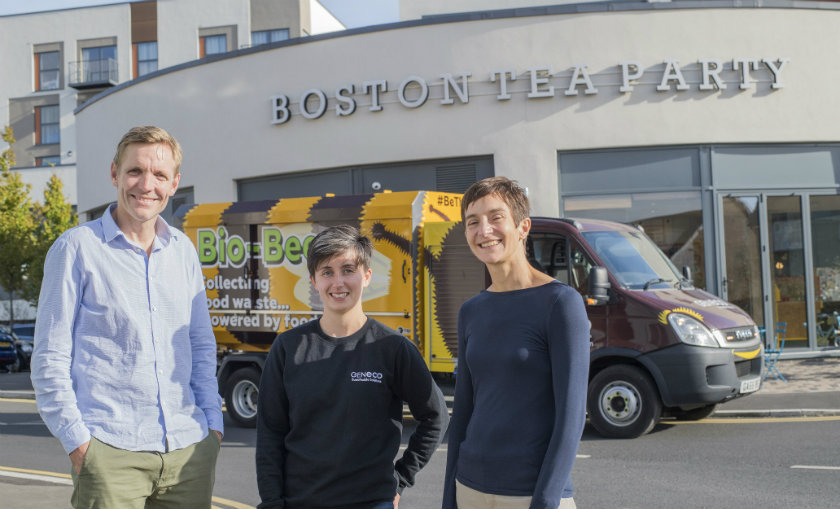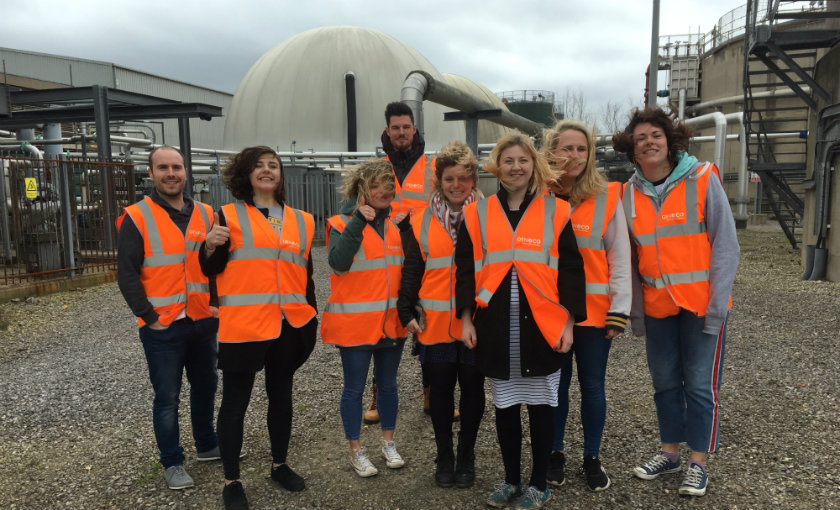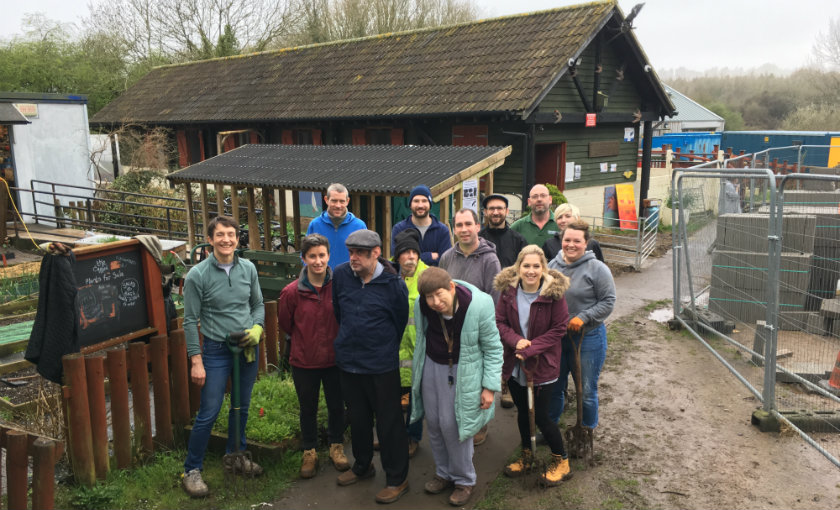Better World: Geneco
- September 27, 2018
Shelley, BTP’s Finance Director gives us a little insight as to what happens those last little scraps of breakfast you just couldn’t finish…
I first came across the clever peeps at GENeco when we started to recycle our food waste in Bristol nearly 5 years ago.

Sam, BTP’s CEO, Charlotte from GENeco, and Shelley, BTP
GENeco were created by their parent company, Wessex water, to help them become more sustainable and they were so successful in their quest that they’ve also been able to help lots of other Businesses just like Boston Tea Party along the way. I say clever peeps, because anyone who can turn poo into fuel and then use it to power a bus is pretty smart in my book. They also work with local councils, treating all of Bristol’s domestic food and sewage waste and also offer educational programs, including tours of their treatment facilities to interested parties including local schools and even Boston Tea Party managers.

Our Bristol and Bath managers take a tour of the facility
They’re really my sort of company because they don’t rest on their laurels, but continue to push boundaries, asking what else they can do to be better or to help others be better.
Our relationship grew stronger when we worked with GENeco to launch their Bio-Bee food waste collection vehicle last year. The Bio-Bee is powered by the food waste that it collects (our Park St cafe’s monthly waste powers it to go for around 550 miles). It’s far less pollutive and noisy than a normal diesel waste vehicle, which in turn improves the quality of Bristol’s air. What if all refuse vehicles were powered in this way? Or if all the waste from neighbouring businesses went in the same collection vehicle rather than many different ones? These are the sort of environment improving initiatives that we would both like to tackle for the greater good of our world.
But how does it work?
Once food waste arrives at the GENeco depot, it goes through a pasteurisation process, in order to create a biofertiliser, safe for spreading on farm land. The pasteurised waste is fed into their anaerobic (meaning without oxygen) digesters where biological treatment begins. Micro-organisms break down the food waste and produce a methane-rich biogas. This biogas is either used to generate renewable electricity or undergoes processing in their gas-to-grid plant to convert it into enriched biomethane. This green gas can be used to provide vehicle transport fuel for vehicles, or supply local homes.
We’ve done other cool stuff together, like spending a day building a fence to improve the visitor centre’s garden at the Lawrence Weston Community Farm and they also joined us at the recent Bristol Coffee House Project as part of the panel discussion on sustainability in the coffee industry.

A day of volunteering at Lawrence Weston Community Farm
